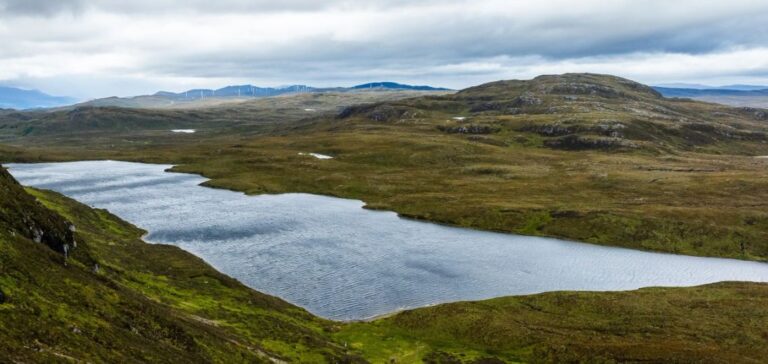Glen Earrach Energy (GEE) has officially submitted an application under Section 36 of the Electricity Act 1989 for a 2GW pumped storage hydropower project (Pumped Storage Hydro, PSH) near Loch Ness. The project is designed to become one of the largest and most efficient energy storage systems in the United Kingdom, with the aim of strengthening national energy security.
A major project supported by the local population
According to an independent survey conducted by Opinium for Glen Earrach Energy, 56% of Highland residents support the installation of the pumped storage project near Loch Ness, while 16% oppose it. The main expectations of those surveyed include access to reliable and affordable energy (54%), economic value and job creation (53%), and community benefits (50%), according to results published by Opinium.
GEE’s project would represent nearly three-quarters of the planned storage capacity around Loch Ness, namely 34GWh out of 46GWh, using only half of the available water resource. Thanks to the site’s specific topography and a 500-metre gross hydraulic head, the facility promises greater energy efficiency compared to competing projects.
A significant local economic impact
If approved, GEE plans to deliver more than GBP20mn ($24.95mn) annually to local communities throughout the project’s estimated 125-year lifespan. This fund would become the largest community benefit scheme ever established in Scotland. The construction phase is also expected to support up to 1,000 jobs at its peak and stimulate local supply chains.
The GEE project could also generate a 10% reduction in the carbon footprint of the UK electricity grid over its first 20 years of operation, with an estimated net benefit of GBP2.9bn ($3.62bn) for the energy system, according to a joint assessment by LCP Delta, Alpiq, and AECOM.
Community consultation process and environmental commitments
Glen Earrach Energy reports that it incorporated feedback from four consultation rounds held in communities around Loch Ness since April 2024. This early engagement led to design changes intended to reduce visual impact, limit traffic on the A82 road, and protect natural views.
The application submitted to Scottish authorities also includes a full Environmental Impact Assessment (EIA), conducted following detailed site studies by specialised teams. GEE has confirmed its commitment to maintaining dialogue with stakeholders to address concerns raised during the planning process.
Glen Earrach Energy Director, Roderick Macleod, stated: “This project is poised to become one of the United Kingdom’s largest energy storage initiatives, delivering substantial economic benefits to the Highlands and ensuring the highest quality of project.”






















